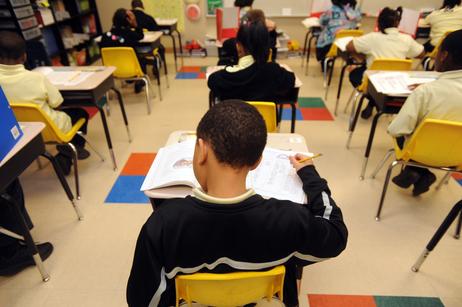The value of standardized test results continues to mount, with state and federal lawmakers utilizing these test scores to give either rewards or punishments to school districts.
Many schools, particularly those in low-income areas that are already stretching resources too thin, are facing additional pressure to "teach to the tests" in order to ensure all of their much-needed funding continues. The pressure has apparently led some teachers and administrators to "tweak" test scores so schools get a better performance rating.
Cheating in Atlanta?
According to a recent report in the Atlanta Journal-Constitution, as many as 109 teachers and administrators in Atlanta are being investigated for possible cheating on standardized tests. Suspicions began in December 2008, when the paper published an analysis that showed the academic gains in some Atlanta schools were simply too good to be true. When the tests were audited, an unusual number of erasures on tests were discovered, leading to the investigation into allegations of cheating on the tests.
If evidence is found that the educators did indeed change some test answers, they may face further scrutiny and sanctions. The investigative panel responsible for looking into this issue released a final report with the following findings of the employees suspected of cheating:
- 78 of the employees worked at just 12 schools.
- 25 employees at 13 different schools appear to have acted independently.
- 6 employees at the 33 remaining Atlanta ¤Öêü뽿ìë½ Schools also acted independently, according to the investigation.
An article in the stated that a deeper investigation found no evidence of "any district-wide or centrally coordinated effort to manipulate" test scores. The report did not find fault with the superintendent of Atlanta ¤Öêü뽿ìë½ Schools, Beverly Hall, or other top officials within the school system. However, pressure will now be placed on Hall to take aggressive action against such behavior and ease the pressure placed on educators to produce top test scores that led to the possible cheating problem in the first place.
Hall told the New York Times that teachers and administrators suspected of cheating would be referred to the legal department for further investigation. Hall also stated that she had already improved testing procedures and would establish personalized study programs for students affected by the problem.
Atlanta is not the only city to deal with cheating issues on standardized tests. A number of other school districts also appear to be buckling under the pressure these new testing procedures cause, resulting in investigations into cheating allegations across the country.
This video from Democracy Now reports on the cheating scandal in Atlanta.
Houston Test Scores: Too Good to be True?
Like Atlanta, recent test scores at Normandy Crossing Elementary School just outside of Houston appeared too good to be true. Another article in the reported that when the Galena Park Independent School District began investigating the issue, the result was the resignation of the school principal, assistant principal, and three teachers over the apparent cheating scandal.
When test scores are tied to the career path of teachers and administrators, as well as funding for the schools and individual bonuses for some teachers, cheating may be more likely to occur. That appears to be the case in this Houston school, where some math and science teachers stood to receive bonuses of nearly $3,000 if test scores were high enough.
This video from PBS reports on why teachers fudge students' test scores.
The Phenomenon of Teachers Cheating Across America
The New York Times reported that recent investigations in Georgia, Indiana, Massachusetts, Nevada, and Virginia also pointed to cheating by educators.
"Educators feel that their school's reputation, their livelihoods, their psychic meaning in life are at stake," Robert Shaeffer, public education director for FairTest, told the Times. "That ends up pushing more and more of them over the line." FairTest is a non-profit organization that is critical of standardized testing procedures.
However, others say that every industry boasts a few bad apples, and standardized testing is not to blame for this trend. It is true that the majority of school districts submit their standardized test scores every year, and only a few are brought under scrutiny due to cheating suspicions.
While the debate regarding standardized testing rages, school districts will continue to investigate and manage cheating teachers and administrators on an individual basis. As others see the results these scandals pose to both schools and the students who attend them, people may begin to further question the best ways to assess student and school performance - without the added pressure on schools to perform despite the educational challenges they might face.
Why do teachers cheat?
Alia Wong writing in draws the following conclusion as to why teachers cheat when marking tests.
"In New York, attitudes toward manipulationãthe propensity among teachers to score lenientlyãappear to have varied significantly from school to school. They also, interestingly, may have even varied within schools. In the Regents study, white and Asian students were more likely than their black and Latino counterparts to have their test scores manipulated if they fell just short of the cutoffãthere were just much more black and Latino students total who scored below the threshold. In other words, the score manipulation may have contributed to inequality just as much as it erased it.
ã'You could argue that ãÎ these are students who are close to the threshold, very near it, and it appears that teachers are using information outside of the Regents exam when deciding when to give students a little bit of a nudge over that threshold,ã Dee said. ãGetting students to graduate at a higher rate is unequivocally a good thingãbeing a high-school dropout is sometimes called an economic death sentence with some legitimacy.'"
This video outlines several reasons why teachers cheat when scoring students' grades.
Questions? Contact us on Facebook. @publicschoolreview














